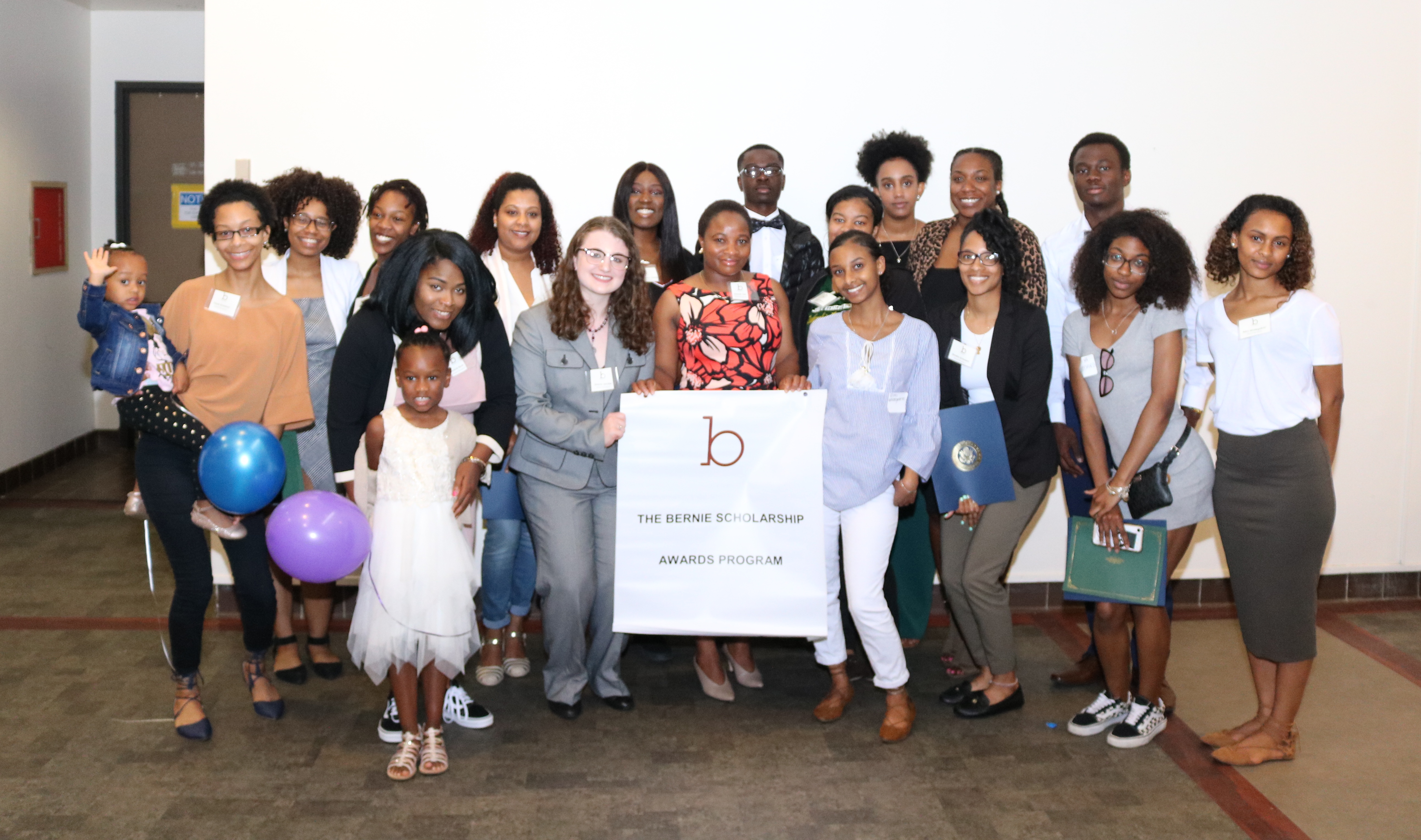Program Impact
Program Impact

Since 1996, The Bernie Scholarship Awards Program (BSAP) has provided 814 award funds to 595 scholars, dispersing $903,700 including 185 scholars who received multiple awards to complete their college degree or workforce development certification/licensure.
| Our scholarship awards may be used for tuition, books, fees, transportation, child care, computer and other education-related equipment. Funds are awarded for up to 4 years to assist with degree or certification completion, if needed. | Since 1996, we have provided 814 award funds totaling $903,700 for determined disadvantaged and low-income students. 53% are First Generation, 29% immigrants, 21% children of immigrants, 92% are minorities. | We are changing lives and future generations and also making a difference in our communities. 98% of BSAP awardees completed a degree or certification or are continuing toward their educational goals. | We’re attempting to reduce the amount of paper we waste, along with the associated mailing expenses. Please provide us with your email address so we can send a digital version of our newsletter. [email protected] |
| The Bernie Scholarship Awards Program — Diversity, equity and inclusion statement |
| We take a broad view of diversity, embracing diversity of age, gender identity, race, sexual orientation, physical or mental ability, ethnicity, national origin, socio-economic background, and educational background. We value the visible and invisible qualities that make each person who h/she is. We recognize that every person brings a unique perspective, enhanced by life experiences, that is critical to our mission of increasing financial stability through education for disadvantaged members of our community. Our motivation is to create an environment where everyone from any background can thrive. We strive to include diversity, equity and inclusion practices at the center of our organization’s work. Award Recipients’ Ethnicity (average) American Indian 1% Asian 3% Black/African American 69% Hispanic/Latino 11% Multiracial 3% White/Caucasian 8% Not tracked 5% Gender Female 82% Male 18% Age 16-24 50% 25-44 42% 45-64 8% Applicant type High schooler graduating 21% Adult 79% Prior awardees 27% Immigrants and First Generation Immigrants 29% Children of immigrants 21% First generation 53% Range of study: Nurse, pediatrician, surgeon, occupational therapist, psychiatrist, biologist, veterinarian; social worker, therapist; business, director of a nonprofit; computer science/IT, software engineer, cybersecurity; mechanical engineer; teacher, school principal; human resources; criminal justice, law enforcement; attorneys-family, abuse, children, immigration, business, criminal; and more. |
Outcome Studies:
Studies have shown that education is a very effective weapon for poverty eradication. In 2013, only 6% of college graduates were living in poverty, compared to 22% of high school graduates now. According to a recent study by the Pew Research Center (February 11, 2014), millennial college graduates ages 25 to 32 who are working full-time earn more annually—about $17,500 more—than employed young adults holding only a high school diploma. The pay gap was significantly smaller in previous generations. College-educated millennials also are more likely to be employed full-time than their less-educated counterparts (89% vs. 82%) and significantly less likely to be unemployed (3.8% vs. 12.2%).
- College Consensus honored BSAP as #1 in Maryland’s top 5 scholarship programs. www.collegeconsensus.com/scholarships/maryland/